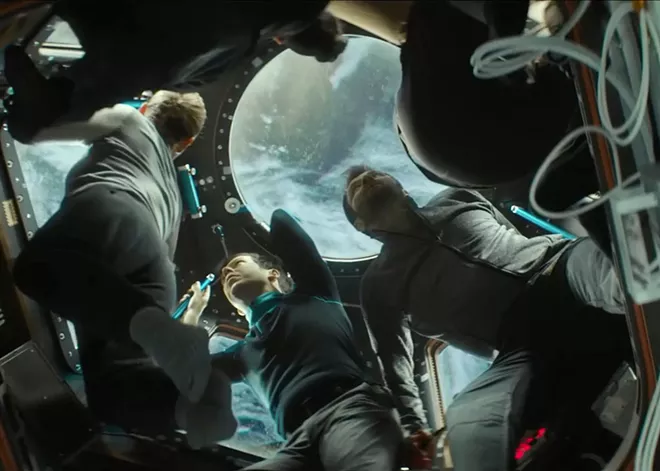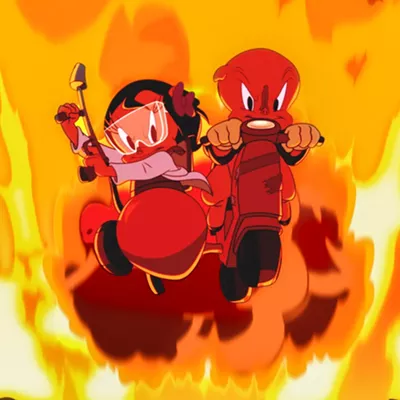In the opening act of I.S.S., the sporadically engaging yet still superficial science fiction thriller, a communication is received aboard the International Space Station that houses a crew of three Americans and three Russians. A war has kicked off between the two countries down on Earth, meaning the space vessel is, supposedly, now of vague strategic value. The message sent is simple: Take over the I.S.S. from the very people you've been working right alongside. In a moment of unintentional humor, a clarifying message gets sent that this must be done "by any means necessary."
In case it wasn't already clear what was meant initially, the government powers decided to drop in a line that feels like it would be better suited to a Mission: Impossible film. Processing this, one of the stunned crew members can only muster one word in response: "Why?" While a narrative contrivance, the first of many in I.S.S., prevents the astronaut from sending it, it provides an accidental laugh at the sheer silliness of this question. However, in the twists and turns of the 95-minute film, the question of "Why?" will be something that keeps coming up. Why did that person suddenly lash out like that? Why are they now totally calm? Why is any of this happening?
Some of this uncertainty is by design, as the experience is built around the paranoia of whether the people you're trapped in the confined space station with may soon try to kill you. But much of it ends up feeling like, behind all the suspect decisions made, the only driving force is "because the plot needs them to do this." The character motivations are quite hazy, with some patently ridiculous late reveals playing more like desperate attempts at keeping things moving rather than earned escalations. Who all of these people are gets largely lost in contrived conflicts. Though a case could be made that this too is the point, that people with more in common than they realize are made to fight for governments that couldn't care less about them in wars for which there can be no logical rationalization. That said, rarely does screenwriter Nick Shafir (penning his feature debut) have a handle on these complicated ideas.
Trapped in the middle of this is Dr. Kira Foster, played by West Side Story's Ariana DeBose, who makes her painfully undeveloped character more compelling by sheer force of will. Foster is a newcomer to the station and is one of the few who seems to want to stop everyone from killing each other. Unfortunately, the film remains hellbent on working against the character and DeBose's performance at every turn.
There is the halfhearted introduction of a ticking clock threat, which ultimately becomes irrelevant, ridiculous twists that feel like they were thought up in the moment as opposed to built into the story from the jump, and a lack of anything resembling earned tension. Even with some occasional grasps at poignancy, like when two characters get locked away from the rest in a fight to the death (where the film starts to hit on something deeper about there being no real victors in combat), the rest of the film just feels like it is scrambling about — feeling as lost and adrift in the mess as the crew itself.
When it comes to works that effectively bring us right up to the edge of our destruction in the confines of space — like Danny Boyle's stunning 2007 film Sunshine, which was wrongly dismissed by many on its release — there has to be something more than the bare bones of a thriller to make it resonate. You can forgive dodgy effects, which are increasingly prevalent throughout I.S.S., if it is aiming toward something emotionally or thematically substantive. Here, you're just perpetually left wondering "Why?" about questions big and small before the film drifts off in an ending that cements its emptiness. As it turns out, the most terrifying thing that can happen in space is not when nobody can hear you scream. It's when we can hear the screams but simply don't care. ♦


















